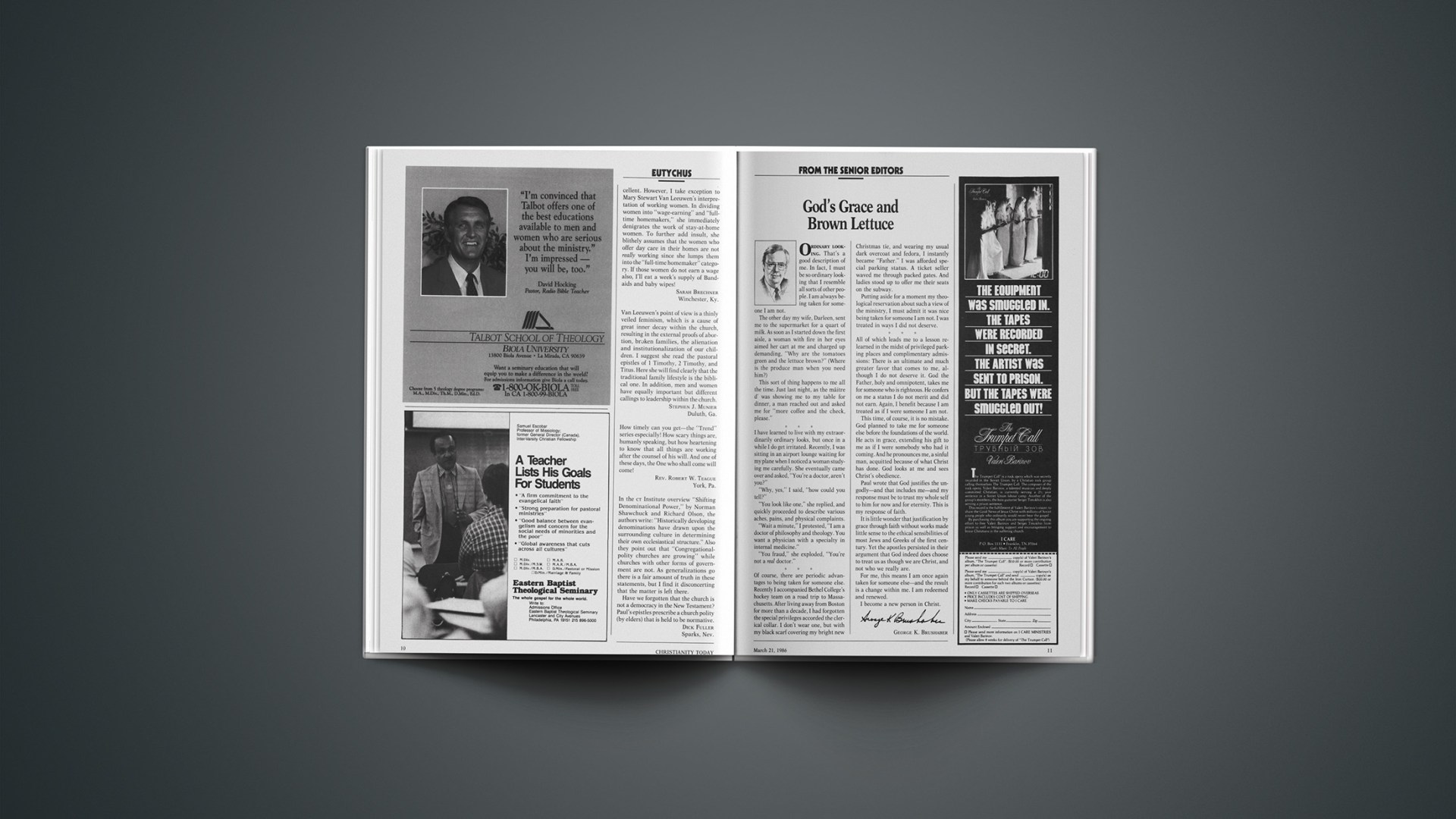Ordinary looking. That’s a good description of me. In fact, I must be so ordinary looking that I resemble all sorts of other people. I am always being taken for someone I am not.
The other day my wife, Darleen, sent me to the supermarket for a quart of milk. As soon as I started down the first aisle, a woman with fire in her eyes aimed her cart at me and charged up demanding, “Why are the tomatoes green and the lettuce brown?” (Where is the produce man when you need him?)
This sort of thing happens to me all the time. Just last night, as the mâitre d’ was showing me to my table for dinner, a man reached out and asked me for “more coffee and the check, please.”
I have learned to live with my extraordinarily ordinary looks, but once in a while I do get irritated. Recently, I was sitting in an airport lounge waiting for my plane when I noticed a woman studying me carefully. She eventually came over and asked, “You’re a doctor, aren’t you?”
“Why, yes,” I said, “how could you tell?”
“You look like one,” she replied, and quickly proceeded to describe various aches, pains, and physical complaints.
“Wait a minute,” I protested, “I am a doctor of philosophy and theology. You want a physician with a specialty in internal medicine.”
“You fraud,” she exploded, “You’re not a real doctor.”
Of course, there are periodic advantages to being taken for someone else. Recently I accompanied Bethel College’s hockey team on a road trip to Massachusetts. After living away from Boston for more than a decade, I had forgotten the special privileges accorded the clerical collar. I don’t wear one, but with my black scarf covering my bright new Christmas tie, and wearing my usual dark overcoat and fedora, I instantly became “Father.” I was afforded special parking status. A ticket seller waved me through packed gates. And ladies stood up to offer me their seats on the subway.
Putting aside for a moment my theological reservation about such a view of the ministry, I must admit it was nice being taken for someone I am not. I was treated in ways I did not deserve.
All of which leads me to a lesson relearned in the midst of privileged parking places and complimentary admissions: There is an ultimate and much greater favor that comes to me, although I do not deserve it. God the Father, holy and omnipotent, takes me for someone who is righteous. He confers on me a status I do not merit and did not earn. Again, I benefit because I am treated as if I were someone I am not.
This time, of course, it is no mistake. God planned to take me for someone else before the foundations of the world. He acts in grace, extending his gift to me as if I were somebody who had it coming. And he pronounces me, a sinful man, acquitted because of what Christ has done. God looks at me and sees Christ’s obedience.
Paul wrote that God justifies the ungodly—and that includes me—and my response must be to trust my whole self to him for now and for eternity. This is my response of faith.
It is little wonder that justification by grace through faith without works made little sense to the ethical sensibilities of most Jews and Greeks of the first century. Yet the apostles persisted in their argument that God indeed does choose to treat us as though we are Christ, and not who we really are.
For me, this means I am once again taken for someone else—and the result is a change within me. I am redeemed and renewed.
I become a new person in Christ.










